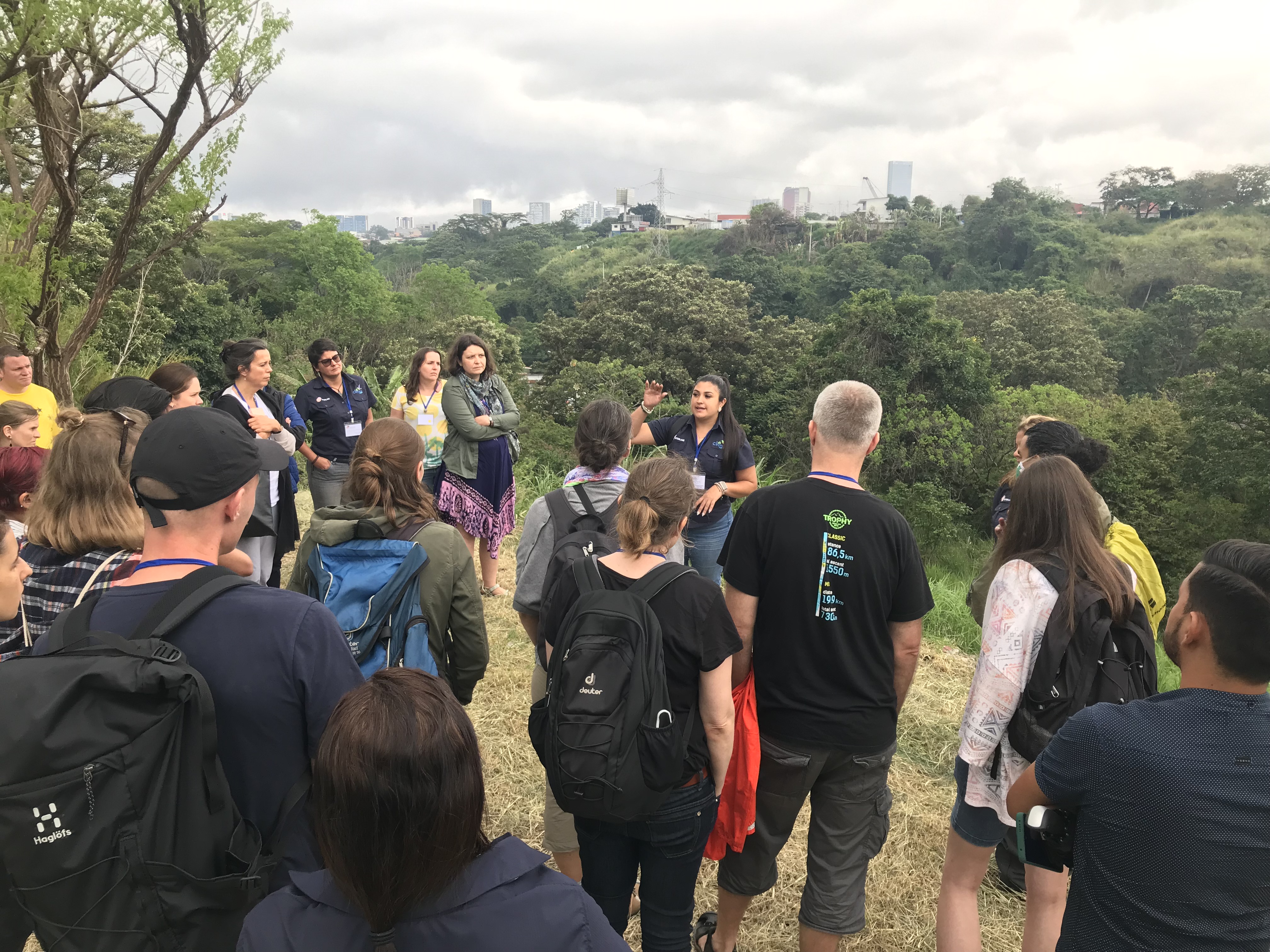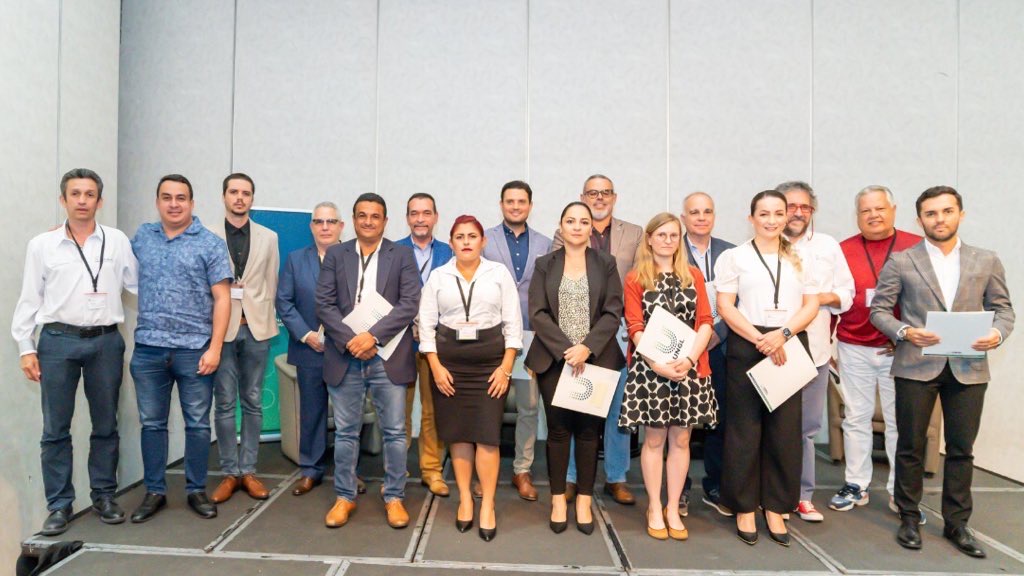Launch of the Peer Learning Note 31: Urban Ecosystem Restoration & Nature-based Solutions
17.11.2022
Key Lessons from INTERLACE’s consortium meeting and first in-person “Cities Talk Nature” engagement event on nature-based solutions and urban ecosystem restoration, which took place from May 9-13, 2022 in Costa Rica, now available!
Costa Rica is often recognized as a leader in nature and biodiversity conservation. With over 30 percent of its national territory marked for conservation, the country works closely with local and regional governments to develop and implement its ecological corridors programs, integrating the principles of ecosystem services and nature-based solutions into municipal land management plans.
This multilevel government coordination was clear during the visit to five different locations across the metropolitan area of San Jose de Costa Rica, in which participants of INTERLACE’s first “Cities Talk Nature” engagement event were able to learn in detail about the Maria Aguilar Interurban Biological Corridor (CBIMA), one of the first interurban corridors established in Costa Rica under its National System of Conservation Areas (SINAC), spanning over 39 km2 across five municipalities with a combined population of around 400,000.
During the field visit, participants witnessed the collaboration, interventions, participatory processes and engaging activities that have been facilitated by this inter-institutional and multi-level governance body which brings together national level organizations, local governments, academia, private sectors, NGOs, and other engaged citizens and stakeholders. They were also able to hear about and discuss other urban ecosystem restoration projects from local governments in Envigado (Colombia), Granollers (Spain), and Portoviejo (Ecuador), extracting key lessons and recommendations for the effective use of nature-based solutions.

“Nature-based solutions (NBS) are an innovative tool available to local governments large or small that allows us to better understand our territory and implement strategies tailored to the needs of our communities” highlighted the Mayor of Alajuelita, Mr. Modesto Alpízar Luna, during the event. “Like in all cities in the valley, Alajuelita’s urban growth is spreading over natural areas, and the concept of NBS allows us to approach the sustainability of this process with more criteria. We embrace the concept of innovation in the city while appreciating the existing realities and the proposed visions”.
An introduction to nature-based solutions, the good practices presented, as well as key lessons, challenges, and recommendations shared during the event have now been compiled in a peer learning note by UCLG’s learning team and the INTERLACE project, available in English and Spanish.
++++++++++++++++
About INTERLACE and Cities Talk Nature
The event and the note are part of the EU-funded INTERLACE project (2020-2024) that connects cities from Europe and the Community of Latin American and Caribbean States (CELAC) and equips them to effectively restore and rehabilitate (peri-)urban ecosystems for livable, resilient and inclusive cities. The good practices, tools and methods documented or developed in the project are shared with municipalities across the globe via the “Cities Talk Nature” programme, which offers webinars and in-person events.
The program, facilitated by a unique cooperation between United Cities and Local Governments (UCLG), Climate Alliance, the Latin American Federation of Cities, Municipalities and Associations of Local Governments (FLACMA), and the National Union of Local Governments of Costa Rica (UNGL), is open to all interested cities to join, showing their commitment and gaining access to multiple resources regarding technical, policy and governance aspects around the implementation of nature-based solutions.

In Costa Rica, 23 municipalities signed the Cities Talk Nature engagement letter at the end of the event, committing to support restorative nature-based solutions for nature, people and places and to actively participate in the peer learning exchanges promoted by the project. These cities included: Alajuela, Alajuelita, Curridabat, Buenos Aires, Desamparados, Escazú, Goicoechea, Guarco, Jiménez, La Unión, Moravia, Oreamuno, San José, San Rafael, and Tilarán (from Costa Rica), Envigado, Girón, and Mosquera (from Colombia), Chemnitz (Germany), Comerio (Puerto Rico), Granollers (Spain), Huechuraba (Chile), and Portoviejo (Ecuador).
Learn more about the “Cities Talk Nature” program and how your city can join https://interlace-hub.com/cities-talk-nature.